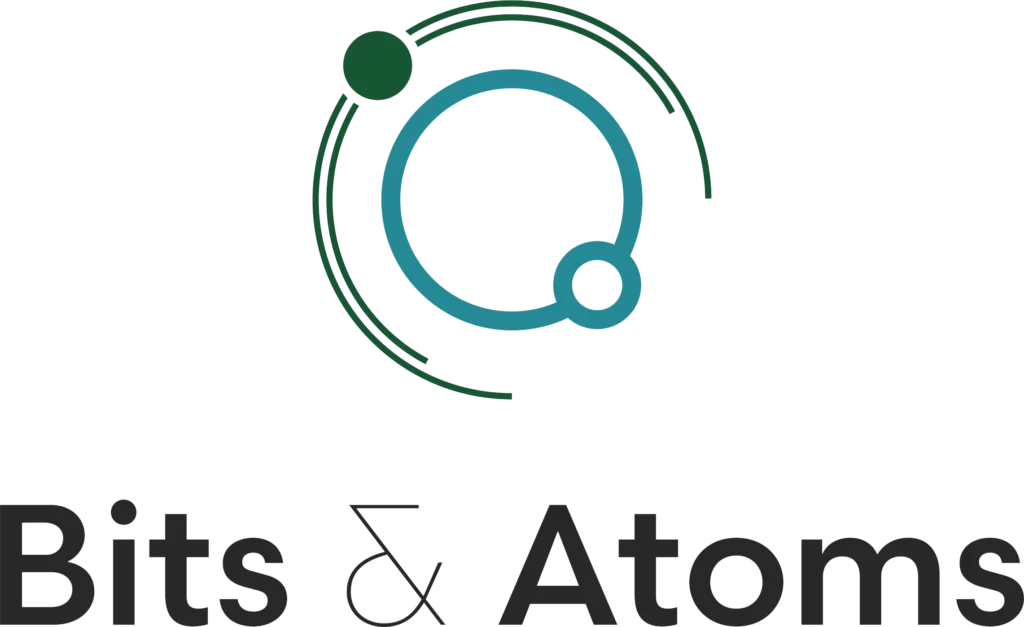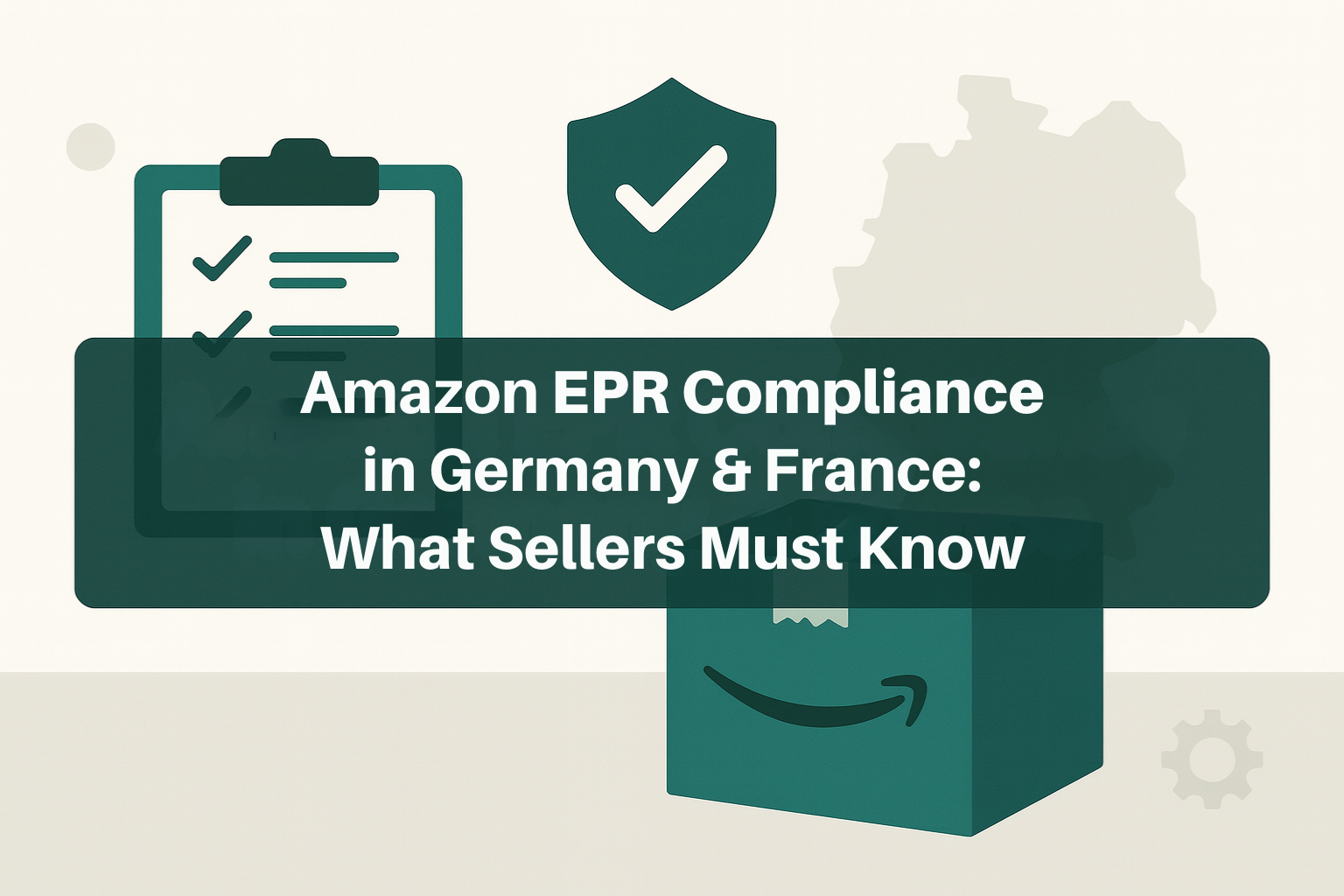For Amazon sellers expanding into Europe, Germany and France are the two most demanding countries for Extended Producer Responsibility (EPR). Unlike other EU markets where enforcement is still developing, both have strict laws and direct obligations for marketplaces like Amazon. That means sellers cannot list certain products until they provide proof of compliance.
If you want to sell in these countries, you must first complete Amazon EPR registration. This requires obtaining official registration numbers, such as a LUCID number for packaging in Germany or a UIN (Unique Identification Number) in France, before your listings can go live.
This guide provides a detailed breakdown of what’s required in Germany and France, the average timelines to obtain each registration, and practical steps to remain compliant.
EPR Compliance in Germany
Germany enforces EPR under three main laws: the Packaging Act (VerpackG), the Electrical and Electronic Equipment Act (ElektroG/WEEE), and the Battery Act (BattG). Amazon Germany is legally obligated to suspend non-compliant listings, so if you do not provide a valid registration number, you simply cannot sell.
Packaging (VerpackG and the LUCID Register)
Every seller shipping goods to German consumers must register with the LUCID Packaging Register managed by the Central Packaging Registry (ZSVR). This applies to both product packaging and shipping boxes.
- Timeline to obtain a LUCID number: Registration is free, done online, and typically approved within a few business days. You’ll receive a 13-digit LUCID ID once approved.
- Why it matters: Without a valid LUCID number, Amazon Germany will not activate your listings. Since July 2022, Amazon automatically checks the database and blocks products that do not have packaging compliance attached.
- Additional requirement: You must also sign a contract with a dual system (a recycling organization) and pay fees based on the type and weight of packaging you place on the market.
In practice, sellers should complete LUCID registration before listing any products in Germany, otherwise their inventory will remain inactive.
Electronics (WEEE/ElektroG)
If you sell electronic products that require electricity or batteries, you must comply with ElektroG by registering with Stiftung EAR (the national WEEE authority).
- Timeline to obtain a WEEE number: Registration is more complex than LUCID and can take 6–10 weeks on average, sometimes longer if documentation is incomplete. A German-based Authorized Representative may be required for non-EU sellers.
- Amazon enforcement: Amazon Germany requires sellers to submit their WEEE registration number in Seller Central. Without it, electronics listings are automatically deactivated and cannot go live.
- Ongoing obligations: You must also report the number of units or weight of electronics placed on the German market and finance their recycling at end-of-life.
Because of the long lead time, sellers planning to sell electronics in Germany should prioritize WEEE registration well before their intended launch.
Batteries (BattG)
If you sell standalone batteries or products that include batteries (e.g., toys, laptops, watches), you must register under the Battery Act.
- Timeline: Battery registration is generally faster than WEEE and can often be completed in 2–4 weeks.
- Amazon enforcement: Similar to WEEE, you must provide your registration details. If missing, Amazon blocks affected listings.
In all cases, compliance in Germany follows a strict rule: no registration number, no sales.
EPR Compliance in France
France has one of the broadest EPR frameworks in Europe, covering 19 product categories, including packaging, electronics, batteries, furniture, textiles, toys, and sports goods. Sellers must obtain a Unique Identification Number (UIN) for each applicable category.
Packaging in France
All sellers shipping goods to French customers must register for packaging compliance. This is usually done through organizations such as CITEO, which issue a packaging UIN once registration is complete.
- Timeline: Registration can be finalized in 2–3 weeks depending on processing times.
- Amazon enforcement: Sellers must provide the UIN in Seller Central. If you cannot, Amazon may automatically enroll you in its Pay on Behalf service, deducting fees from your account to cover recycling obligations.
Electronics and Batteries in France
Electronic products fall under the French WEEE system, and batteries are covered separately. Both require registration with approved recycling organizations (such as Ecologic or Corepile), each providing its own UIN.
- Timeline: Obtaining a UIN for WEEE or batteries usually takes 3–6 weeks, but it can take longer if you’re registering as a foreign seller and need an Authorized Representative in France.
- Amazon enforcement: If you don’t supply the UINs, Amazon either blocks listings or charges you through Pay on Behalf.
The Role of the Authorized Representative
Foreign sellers without a French entity must appoint an Authorized Representative to complete registrations. This is a legal requirement and can add time and cost to the process. For non-EU sellers, planning ahead is essential since UINs are only issued once the representative is in place.
Pay on Behalf vs. Direct Registration
While Amazon’s Pay on Behalf service provides a fallback, it comes with service fees and leaves you with less control. Long-term, direct registration is the better approach because it ensures full compliance, avoids extra Amazon charges, and allows you to manage reporting directly with the recycling organizations.
Average Registration Timelines
Here is a summary of how long it typically takes to secure compliance in Germany and France:
- Germany LUCID (Packaging): 2–5 business days
- Germany WEEE (Stiftung EAR): 6–10 weeks
- Germany Batteries: 2–4 weeks
- France Packaging UIN: 2–3 weeks
- France WEEE UIN: 3–6 weeks
- France Battery UIN: 3–6 weeks
These timelines can vary, but they illustrate why sellers must start the process early. Amazon does not allow listings to go live until valid registration numbers are provided, so delays in paperwork directly affect sales.
Working with EPR Service Providers
Many Amazon sellers choose to work with specialized compliance providers who handle EPR registration, reporting, and Authorized Representative services.
Sellers should:
- Research multiple providers.
- Request quotes based on product categories and sales volume.
- Evaluate service packages, timelines, and fees.
The right provider can simplify compliance significantly, but it’s important to compare options and choose a partner that fits your business model.
Brief Note on Other EU Marketplaces
While Germany and France are the strictest, sellers should also be aware of growing EPR enforcement in other markets:
- Spain: Packaging and electronics now fall under EPR, with Amazon offering Pay on Behalf.
- Austria: From 2023, foreign sellers must comply with packaging and WEEE.
- Italy: Packaging and electronics compliance applies, with additional rules like packaging labeling.
- UK: Packaging EPR is being phased in, and Amazon reports on behalf of foreign sellers.
Although this article focuses on Germany and France, the wider trend is clear: EPR is expanding across Europe, and sellers should anticipate compliance becoming mandatory in all major EU marketplaces.
FAQs: Quick Answers on Amazon EPR Compliance
1. Do I need an EPR registration number before I can sell on Amazon Germany or France?
Yes. Amazon will not allow your listings to go live unless you provide valid registration numbers. In Germany, this means a LUCID number for packaging and a WEEE number if you sell electronics. In France, you need a UIN (Unique Identification Number) for every product category that applies to your products.
2. How long does it take to get these registration numbers?
- LUCID number in Germany: usually 2–5 business days.
- WEEE number in Germany: often 6–10 weeks.
- Battery registration in Germany: around 2–4 weeks.
- Packaging or WEEE UINs in France: typically 3–6 weeks, depending on the category and whether you need an Authorized Representative.
3. What happens if I don’t provide a registration number to Amazon?
Your listings in the relevant category will be blocked. Amazon checks directly against national databases (like LUCID in Germany) and automatically deactivates non-compliant products.
4. Can Amazon handle EPR compliance for me?
In France and Spain, Amazon offers a Pay on Behalf program where it covers fees and charges your account. However, this comes with additional service costs. In Germany, you must register directly, Amazon will not do it for you.
5. Do I need to register even if I’m not based in Germany or France?
Yes. If you sell to customers in these countries, you’re considered a “producer” under local law. Non-EU sellers usually need to appoint an Authorized Representative in the country to complete registrations.
6. Where can I find help with EPR registration?
There are several compliance service providers and consultancies that handle registrations and reporting for sellers. It’s best to research different providers, request quotes, and choose one that fits your product categories and business model.
7. Are other EU countries enforcing EPR rules?
Yes, enforcement is expanding. Spain, Austria, Italy, and the UK have active EPR rules, and Amazon is gradually applying similar checks in those markets. Germany and France, however, remain the strictest today.
Final Thoughts
For Amazon Germany and France, EPR compliance is non-negotiable. You must obtain the correct registration numbers—LUCID for packaging in Germany, WEEE for electronics, battery registration numbers, and UINs for each category in France—before Amazon allows you to sell. Timelines vary, with WEEE registration in Germany taking the longest, often several weeks.
Sellers who prepare early, secure their registrations, and choose reliable service providers will avoid disruptions and ensure their Amazon businesses continue to grow in Europe’s most important markets.
If you’re unsure where to start or want expert guidance, Bits & Atoms can help simplify the EPR process for your business. From understanding which registrations you need to connecting you with trusted service providers, we make sure compliance doesn’t hold back your growth.
👉 Book a call with our team today and get clarity on your EPR obligations before listing your products on Amazon.de or Amazon.fr.


